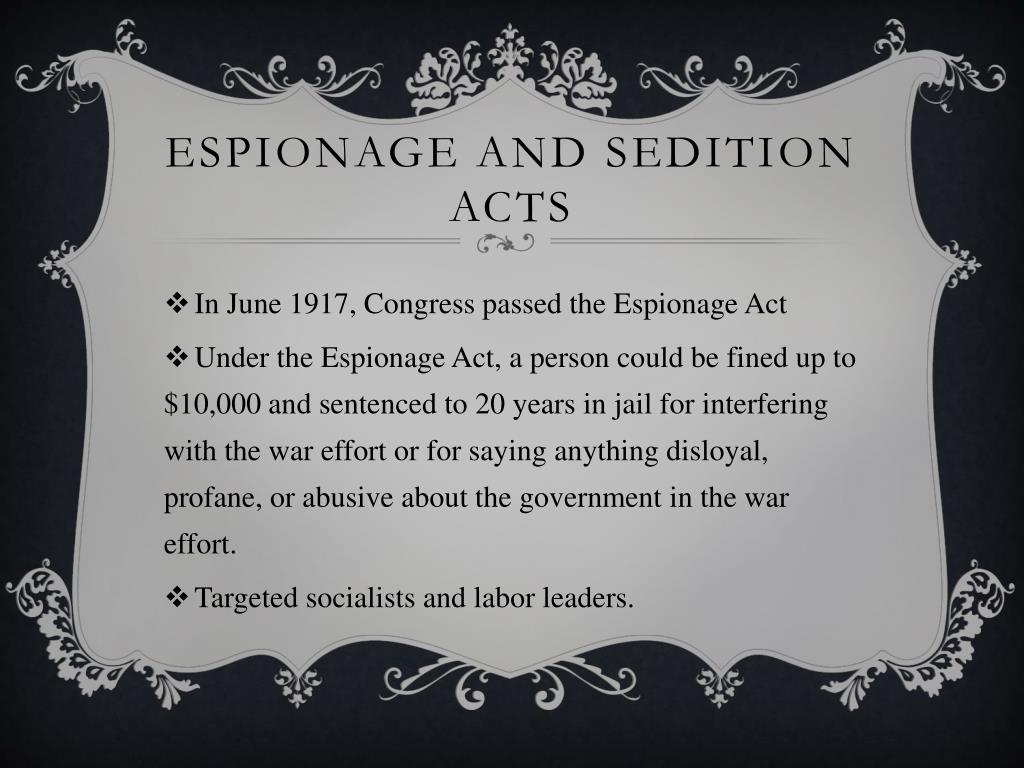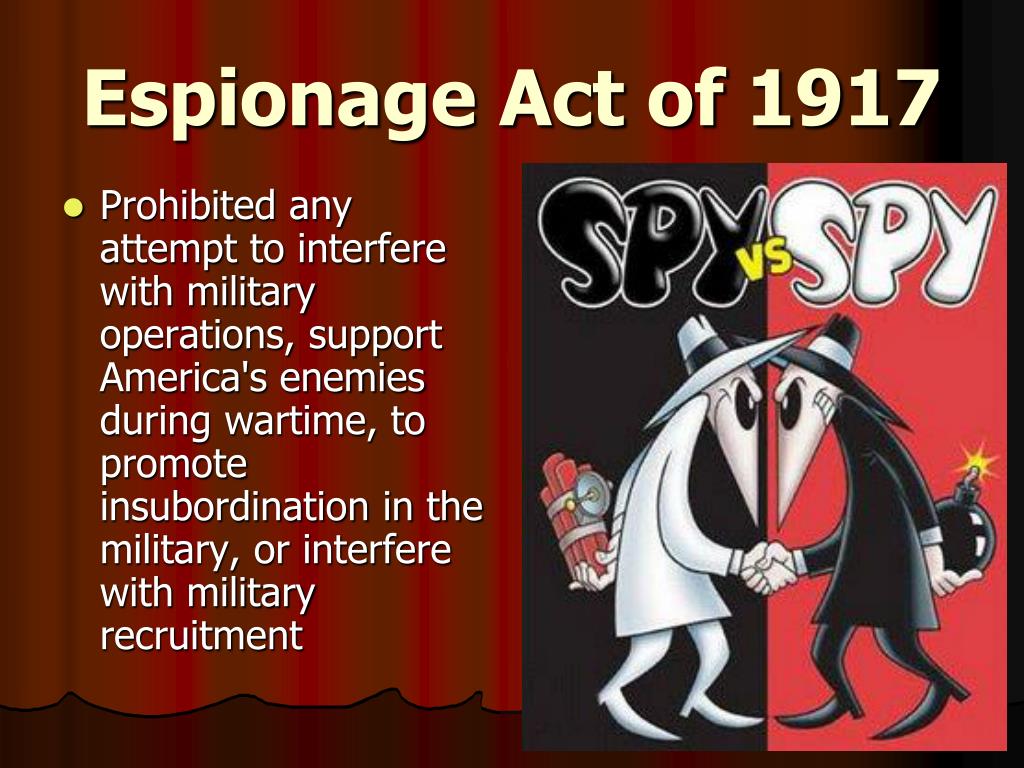


And Assange's factually threadbare indictment doesn't give much indication of how strong a conspiracy case the government has. Gaining, attempting to gain, or conspiring to gain, access is the critical element.
#DEFINE ESPIONAGE AND SEDITION ACTS CRACK#
You have to crack a password, and then use it to gain unauthorized access to a system. But note, under the CFAA it's not against the law to crack a password. As such, it rests squarely in the anti hacking purpose of the CFAA-preventing someone from hacking into a system.
#DEFINE ESPIONAGE AND SEDITION ACTS PASSWORD#
The indictment accuses Assange of a single count of conspiring to hack a password to gain unauthorized access to a government computer. The indictment dances around this issue by trying to limit everything to a technical computer crime conspiracy.

Prison time for Assange might deter others from publishing information that exposes the inner workings of government.Īssange's factually threadbare indictment doesn't give much indication of how strong a conspiracy case the government has. Therefore, the act being prosecuted is inextricably linked to the act of obtaining this information because the charged crime is conspiracy to access the system with the information of public import. The First Amendment protects the act of publishing that information. Prosecuting Assange for a computer crime sidesteps the elephant in the room: this is the prosecution of a publisher of information of interest and importance to the public about our government. The indictment stems from an incident in 2010 when Assange allegedly told then-Army private Chelsea Manning, who was leaking classified materials to Assange to be published on WikiLeaks, that he would help her crack a password to gain access to military computers. Assange is facing a single count indictment for conspiracy to violate the CFAA. Likewise, the Assange prosecution looks more like an attack on core political speech protected by the First Amendment than a proper exercise of prosecutorial discretion. But the CFAA doesn’t clearly tell you all the ways it can be used to take away your liberty. If you lose a criminal case, you lose your liberty. Because at the end of the day, if you lose a civil case you just lose money. Thus, the quality of reasoning in civil cases, despite frequent lip service from courts to the contrary, isn't as robust as in a hard-fought criminal case. Its dual nature gives rise to a problematic feature: most of the law interpreting it comes from civil cases where the stakes aren't as high as in a criminal case. It is both a civil and criminal statute, meaning that people and businesses can use it to sue each other for private wrongs, and the government can use it to put you in jail for public wrongs. Created in 1984, it prohibits unauthorized access to a computer, system, or network and unauthorized deletion, alteration, or blocking of access to, data or information. The CFAA is the federal government's primary anti-hacking statute. Whether intended or not, the CFAA makes it easy for a prosecutor to bring felony computer crime charges even when there’s little or no harm. This was part of #OpLastResort, in protest of the CFAA prosecution and death of computer science pioneer Aaron Swartz, whose suicide in 2013 was widely viewed as resulting from a draconian CFAA prosecution. The US indicted Love in three separate federal courts in New York, New Jersey, and Virginia, for hacking of a number of government sites including NASA, the FBI, the United States Sentencing Commission, and the Bureau of Prisons. For years, I've represented hackers in federal criminal cases nationally involving the CFAA, including Lauri Love, whom the US unsuccessfully tried to extradite from the UK. He can be found on Twitter at Assange’s arrest, many reached out to ask me about the CFAA. Tor Ekeland is a Brooklyn lawyer, and represents people accused of computer crimes in federal and state courts nationally.


 0 kommentar(er)
0 kommentar(er)
